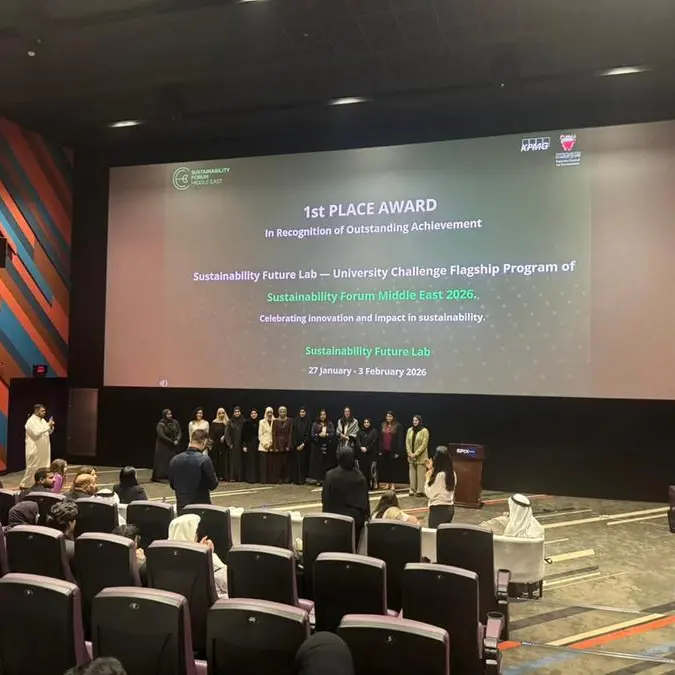PHOTO
- Oil and gas will remain necessary for the energy transition and the world economy even as renewable energy grows to new highs, Majid Jafar tells audience of industry leaders and COP delegates
- Majid Jafar: “This has so far been the largest COP meeting, the most ambitious COP meeting, and we have already witnessed some amazing achievements and announcements. With all this, COP28 is clearly headquartered in the right place, the UAE.”
Sharjah, UAE---COP28 has already succeeded in its first few days, delivering tremendous achievements that will have long term positive impact on sustainability and climate change, Majid Jafar, CEO of Crescent Petroleum, told an audience of industry executives and non-governmental organizations at the COP28 Energy Transition Pavilion.
In a keynote address at the Global Decarbonization Accelerator, Jafar outlined the tremendous milestones already reached since the forum began on Friday, and the major ambitions already being set to deliver lasting change. He pointed a range of milestones reached in only the first few days, including the UAE’s establishment of the Alterra fund with $30 billion already committed, commitments to triple nuclear power and renewable energy sources, as well a swathe of commitments by governments to double energy efficiency by 2050 as key examples.
“This has so far been the largest COP meeting, the most ambitious COP meeting, and we have already heard some amazing achievements and announcements,” Jafar said. “It has been the most inclusive COP, by including the private sector as well as NGOs, and more importantly, by making sure that the developing world are well represented and are consulted in the framing of the agenda. With all this, COP28 is clearly headquartered and hosted in the right place, the UAE.”
Jafar highlighted that oil and gas will remain necessary through the energy transition to a decarbonised economy, creating the products upon which civilization and renewable and energy technologies rely, in addition to supporting the adoption of intermittent forms of energy like solar and wind power. However, Jafar underscored that energy producers must produce energy more cleanly and it must be used more efficiently in the transition.
He highlighted the importance of the Oil and Gas Decarbonisation Charter, announced on 2 December, to which Crescent Petroleum is a signatory along with 50 other leading international oil and gas companies. The charter calls for net zero emissions by 2050 or before, and “near-zero” upstream methane emissions and zero routine flaring by 2030, marking a point of consensus by oil and gas producers to deliver energy more cleanly.
“Like others in the industry, we’ve committed to the Oil and Gas Decarbonisation Charter, as well as the Oil and Gas Carbon Initiative zero methane emissions commitment. Over several years we have reduced our own methane emissions to just 0.12% of production while offseting the remainder with UN Certified carbon credits supporting wind power in China and Mongolia to achieve carbon neutrality across our operations two years ago,” Jafar said. “But the gas we produce actually displaces diesel for power generation in the Middle East and avoids more than 5 million tons of CO2 annually. So the role of natural gas in the transition is also fundamental.”
Lat month, Crescent Petroleum also became a signatory to the “Aiming for Zero Methane Emissions” project of the Oil and Gas Climate Initiative (OGCI), committing to achieving zero methane emissions from its operations by 2030. The pledge reinforces Crescent Petroleum’s long-running efforts to cut methane emissions from its operations and reduce overall carbon intensity to be one of the first oil and gas companies to reach carbon neutrality.
The company has further reduced its carbon intensity to 6.0 kgCO2e/boe, the lowest in the MENA region and one third of the global industry average, while maintaining the company’s carbon neutrality across operations. Crescent Petroleum cut total flared and leakages of methane 31% compared to 2021, amounting to just 0.12% of total production, while cutting hazardous waste 90% and eliminating single use plastics from operations.
Majid Jafar also highlighted the important role the Middle East is playing in enabling and proving new low carbon technologies like green hydrogen, thermal and PV solar and technologies. The combination of investment, innovation and need will make the region a proving ground for the new technologies.
“The Middle East is going to be where a lot of low carbon technologies are proven up. Whether it is big investments being made with green hydrogen, the development of the lowest cost solar energy on the planet, the Middle East is the fulcrum where a lot questions are going to be answered. So it's an exciting time to be here and to have you all come,” Jafar said.
-Ends-
About Crescent Petroleum:
Crescent Petroleum is the first and largest private exploration and production company in the Middle East, with over 50 years of experience as an international operator in numerous countries including Egypt, Yemen, Canada, Tunisia, and Argentina, in addition to its continuing operations in the United Arab Emirates and Iraq.
The company is a signatory to the Oil and Gas Decarbonisation Charter calling for net zero emissions from its operations by 2050 or before, and “near-zero” upstream methane emissions and zero routine flaring by 2030. It has also committed to the “Aiming for Zero Methane Emissions” project of the Oil and Gas Climate Initiative (OGCI), committing to achieving zero methane emissions from its operations by 2030.
Headquartered in Sharjah in the UAE, Crescent Petroleum has international offices in the UK and three locations across Iraq, as well as affiliated offices in Egypt and Bahrain. Crescent Petroleum is also the largest shareholder in Dana Gas, the Middle East’s first and largest regional private-sector natural gas company.
www.crescentpetroleum.com
Contact: Sahara Public Relations




















